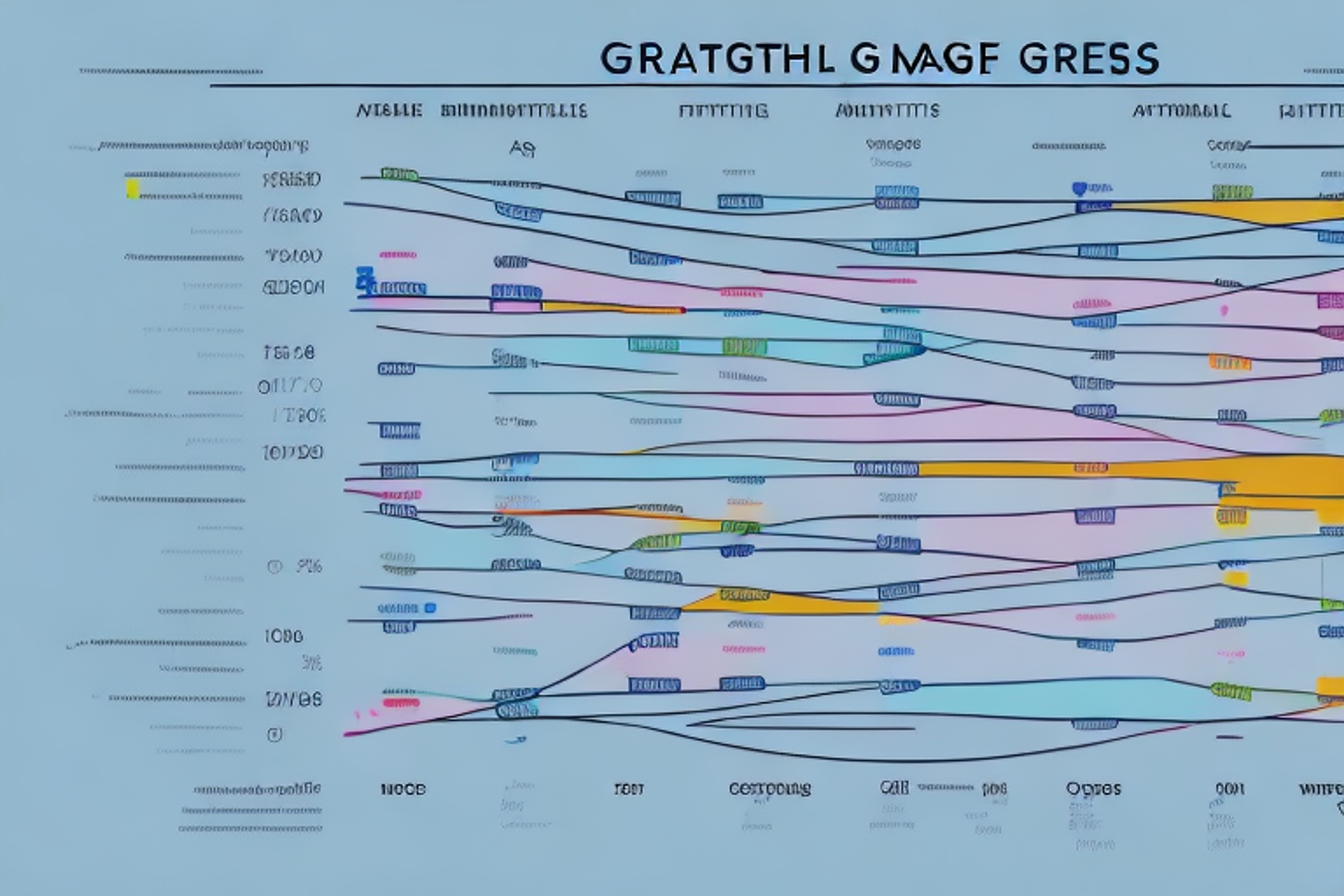
Table of Contents
If you're planning to pursue an MBA, then the GMAT (Graduate Management Admission Test) is an integral part of your application. GMAT performance plays a significant role in determining your eligibility for top MBA programs. In particular, a lot of weight is given to your GMAT score because it is an objective measure of your abilities when compared to subjective items like recommendation letters and essays. As a result, you may be wondering "What is a good GMAT score?" In this article, we will explore everything you need to know about GMAT scores and what constitutes a good score for your application.
Understanding the GMAT Exam and its Scoring System
The GMAT exam is a computer-adaptive test consisting of four sections: analytical writing, integrated reasoning, quantitative reasoning, and verbal reasoning. Scores for each section range from 0-60, and the total score ranges from 200-800. The average GMAT score is around 540, but most top business schools prefer scores above 700 because high scores demonstrate strong analytical, verbal, and quantitative skills.
It is important to note that the GMAT exam is not just a test of knowledge, but also a test of time management and critical thinking skills. The computer-adaptive format means that the difficulty level of the questions adapts to the test-taker's ability level, so it is crucial to answer each question to the best of your ability in the allotted time.
Additionally, the GMAT exam is not just for those pursuing an MBA. Many other graduate programs, such as Master's in Finance or Accounting, also require the GMAT as part of their application process. It is important to research the specific requirements of each program you are interested in to determine if the GMAT is necessary.
How Important is the GMAT Score in Business School Admissions?
The GMAT score is a crucial factor in your business school admissions. However, it's not the only factor. Other important criteria include academic record, professional experience, essays, extracurricular activities, and recommendations. A high GMAT score doesn't necessarily guarantee acceptance; it only increases your chances. Equally, a low GMAT score doesn't automatically disqualify you from consideration. The most essential thing is to present a compelling application that showcases your abilities beyond the score.
It's important to note that the weight given to the GMAT score may vary depending on the business school and the program you are applying to. Some schools may place more emphasis on the GMAT score, while others may prioritize other factors such as work experience or leadership skills. Therefore, it's crucial to research the specific requirements and preferences of each school you are applying to and tailor your application accordingly.
What is the Average GMAT Score for Top Business Schools?
The GMAT score requirements vary considerably among top business schools. The Stanford Graduate School of Business has the highest average GMAT score of 733, followed closely by Harvard Business School, which requires an average score of 730. On the other hand, schools like William & Mary's Mason School of Business (~601) and the University of Tennessee's Haslam College of Business (~610) have lower average scores.
It is important to note that while GMAT scores are a significant factor in the admissions process, they are not the only factor. Business schools also consider a candidate's work experience, undergraduate GPA, essays, and letters of recommendation. In fact, some schools have started to waive the GMAT requirement altogether, such as the University of Chicago Booth School of Business and the Kellogg School of Management at Northwestern University.
Additionally, the GMAT is not the only standardized test accepted by business schools. The GRE (Graduate Record Examination) is also accepted by many schools and can be used as an alternative to the GMAT. Some schools, such as the Yale School of Management, even allow applicants to submit scores from both tests and choose which one to use in their application.
How to Determine Your Target GMAT Score
Before diving into GMAT study, it is essential to develop a target score range based on the schools you wish to attend. Start by researching the average GMAT score requirements for each school's MBA program, and then set a target score that is at least 20 points higher than the average. By doing so, you demonstrate to the admissions team that you exceed the standards.
It is also important to consider your own strengths and weaknesses when setting your target GMAT score. If you excel in quantitative subjects, you may want to aim for a higher score in the quantitative section of the exam. On the other hand, if you struggle with verbal reasoning, you may want to focus more on improving your score in that section. By tailoring your target score to your individual strengths and weaknesses, you can maximize your chances of success on the GMAT and in your MBA program.
Strategies for Achieving a High GMAT Score
To achieve a high GMAT score, invest time in practice and preparation. One of the best ways to start is by taking a computer-adaptive practice exam to see how you perform. Afterward, develop a customized study plan based on your strengths and weaknesses. Use different resources such as study guides, textbooks, online courses, etc., to create a well-equipped strategy. It's also essential to remain calm and composed during the exam. You'll need to avoid pre-exam anxiety, maintain focus during the test, and manage your time effectively.
Another crucial strategy for achieving a high GMAT score is to familiarize yourself with the exam format and question types. The GMAT consists of four sections: Analytical Writing Assessment, Integrated Reasoning, Quantitative, and Verbal. Each section has a specific time limit, and the questions vary in difficulty level. By understanding the exam format and question types, you can develop a better approach to tackle each section. Additionally, practicing with official GMAT practice questions can help you get a feel for the types of questions you'll encounter on the exam.
How to Prepare for the GMAT Exam: Study Tips and Resources
Preparation is essential to achieve a high GMAT score. Adequate preparation can take between two and six months. During that time, you can opt for a GMAT course, taking an online class, session with a tutor, or self-study plan. Create a daily study routine and incorporate different study materials for effective learning, practice, and application.
When Should You Take the GMAT Exam? Best Time to Take it
The ideal time to take the GMAT exam depends on your application deadline and when you feel adequately prepared. It's best to take the exam at least six months before the application deadline to allow ample time for retakes if necessary.
Common Mistakes to Avoid During the GMAT Exam
On the day of the exam, it's essential to avoid common mistakes like rushing, getting stumped, or spending too much time on one question that spikes anxiety or panic. Failing to manage your time will impact your overall score. Ensure that you have ample time to review your answers before submitting.
Retaking the GMAT: Is it Worth It?
Retaking the GMAT exam is a common occurrence, especially when you feel you could do better. However, it's essential to understand the implications of retaking the exam and to consider whether a higher score is worth the time, effort, and resources. A retake's success depends on your ability to address your shortcomings by adjusting your study plan or using new study materials to improve your score.
Alternatives to the GMAT: Other Standardized Tests for Business School Admissions
The GMAT is not the only standardized test that business schools accept. Other tests include the GRE (Graduate Record Exam), LSAT (Law School Admission Test), and MCAT (Medical College Admission Test). However, it's essential to check with each school you're interested in, as admission requirements vary.
How to Explain a Low GMAT Score in Your MBA Application
If you have a low GMAT score, it's essential to provide an explanation in your application. Explain any circumstances that may have adversely affected your performance, such as an illness, family emergency, or work overload. Additionally, you can talk about how you've improved your abilities by providing examples of achievements in your work, research, or academic projects.
The Role of Work Experience in Business School Admissions
Work experience plays a vital role in business school admissions. Demonstrated leadership, managerial experience, and industry-specific skills are necessary to succeed in an MBA program. The admissions team considers both the quality and quantity of work experience during the evaluation process.
Balancing Your GMAT Score with Other Factors in Your MBA Application
Gaining acceptance to a top MBA program is more than just submitting a high GMAT score. The admissions team considers numerous factors, including individual experiences, professional achievement, leadership potential, and demonstrated interest. To increase your chances of success, you must balance your GMAT score with other components of your application that showcase your strengths beyond the score.
Conclusion: What a Good GMAT Score Means for Your Future Career Opportunities
A good GMAT score opens the door to numerous future career opportunities, including top MBA programs, higher salaries, and better job prospects. Although a high score is essential, it's not the only factor the admissions team considers. Preparing diligently, understanding your target range, and adequately balancing your score with other application components are all useful in creating an impressive MBA application.












